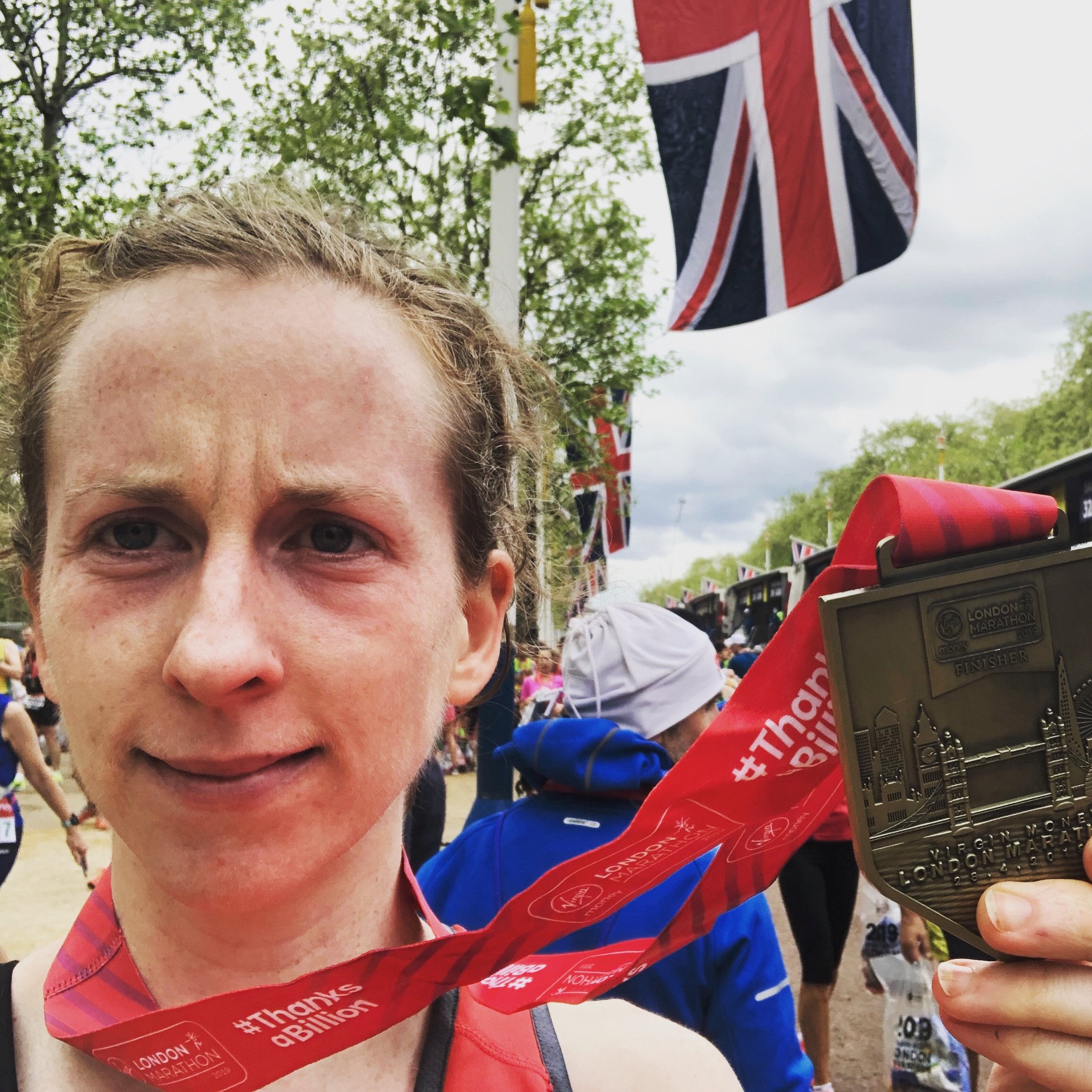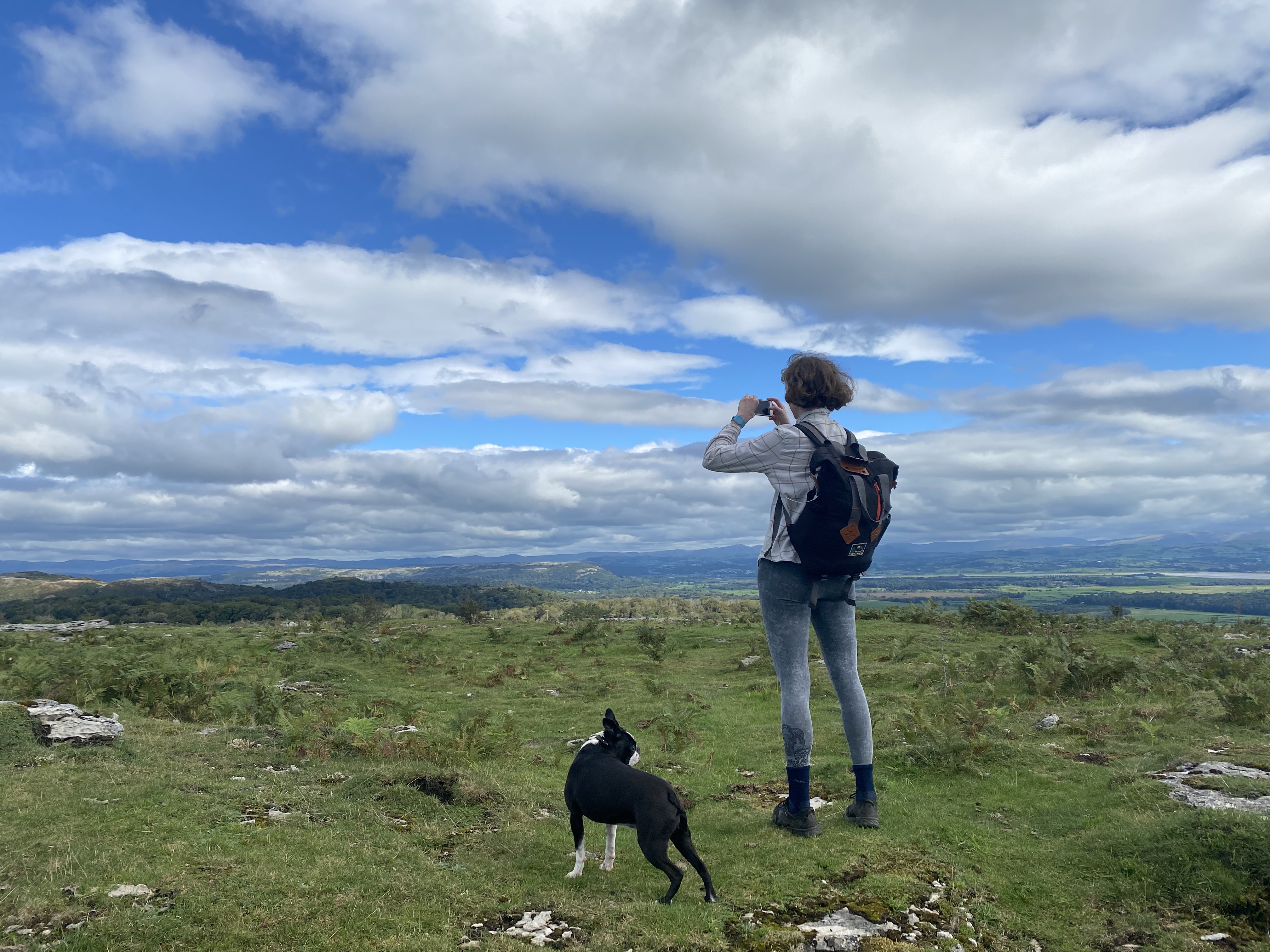London firm’s only female corporate partner serves as legal role model
Articles
Spotlight
View more from News & Articles or Primerus Weekly
There were six miles to go in the 2019 London Marathon, when attorney Fran Spooner hit the wall. Despite all her training and preparation, her body was spent, crying out for her to quit. Her legs felt like lead. Her lungs burned with exhaustion.
But her mind refused to let her body give up.
She forced herself to keep going, focusing every last bit of energy, concentration, and will on simply moving forward. The final stretch of the race was a blur as her senses narrowed into a tunnel that only led to the next stride. She recalls a vague notion of moving. She couldn’t fully take in the cheering crowds as the course followed along the Thames Embankment, passed Westminster and Big Ben, ran parallel to St. James Park, and then onto The Mall before finishing in front of Buckingham Palace.
“I didn’t enjoy that bit at all, but I did finish,” she says of the 26.2-mile trek, which she completed in 3 hours and 30 minutes. “I said afterwards, that was by far the hardest thing I’ve ever done. It was very personal. It was just me.”
And Spooner has done her share of hard things in her legal career. As a partner at Marriott Harrison LLP in London, she’s worked incredibly long hours and negotiated complicated and challenging corporate deals, but she says all that is different from her experience running the London Marathon because at those times she has been part of a team.
“You’re very rarely alone in those work scenarios. It’s not mind over matter — it’s very much mind and matter. Everything is working together,” she says. “The marathon is such a specific challenge because it is just you — your body and your mind.”

Spooner took up running in secondary school where she ran cross country, but it didn’t become a passion until she rediscovered her love for it near the end of her university years when she decided to run a half-marathon with her brothers in 2006.
“I didn’t train properly so the run was horrible, but by then I’d definitely gotten the bug,” she says. “I’ve always liked running and been pretty good at it. It’s hard; and the more you push yourself to go faster or longer, the harder it is.”
Over the next decade or so, running became a routine in her life and she ran several more half-marathons, improving her time each race. She incorporated strength work, yoga, and cycling into her training. She runs two to three times a week through the parks and along the canal in North East London.
“I love going out,” she says. “My mind wanders. I think it’s a form of meditation. It’s a way of processing things, which is really, really useful.”
In 2017, she decided she was ready to try her first full marathon. She completed the Dublin Marathon in 3 hours and 13 minutes, an impressive 7:22 pace per mile.
“I did way better than I expected,” she says. “It’s an interesting challenge. It’s so far and takes so long that even if you’ve trained as well as you could and done all the things you’re meant to do, anything can happen on the day.”
The London Marathon proved an example of that. She describes the popular marathon that draws tens of thousands of runners as “its own beast.”
She says running a marathon is illuminating. “I would encourage anyone to give it a go because you learn you’re capable of much more than you think you are,” she says. “If you can do that sort of thing, you can extrapolate the confidence you gain from it into loads of other pursuits and know that you can really challenge yourself.”
Spooner grew up in the North East of England, near Middlesbrough, in a town that was once known for steel manufacturing. Compared to the hectic bustle of London, where she now lives, Middlesbrough feels “a bit uninhabited, relatively quiet.”
“I think I’ll always have an affinity for it,” she says. “I like it. It’s quite understated. It’s a bit of a secret.”
Her father, Jeremy, was a lawyer with his own firm who did mainly commercial work, and her mother, Judy, was at one time a dentist before becoming a dietician. Spooner has two older brothers.

“I feel like me and my brothers were always running around doing things,” she recalls. “Jumping in on football matches with my brothers’ friends.”
It was Spooner’s father who suggested his daughter consider becoming a lawyer. She also was influenced by the television show “Ally McBeal,” an American legal comedy-drama starring Calista Flockhart as a young attorney who joins a prestigious law firm. The show made the career look “fun, fast-paced, and interesting.”

After graduating from the University of Leicester with a degree in Law and Economics and then Kaplan Law School, Spooner joined Marriott Harrison as a legal trainee in 2010. She’s been there ever since, becoming partner in 2021.
Spooner didn’t know early on what type of law she wanted to practice, but when she was offered a position on the firm’s corporate team, she found it an ideal fit.
“It’s exciting when deals get done and you have that adrenaline kick,” she says. “The transactional nature of the work suits me and my brain. I can be very methodical, and I am very organized.”
Spooner advises clients in a range of sectors on corporate and corporate finance matters including venture capital, venture debt, private equity, M&A, and a variety of other business matters. She mainly works with tech start-ups and growth companies and investors into those companies – she is actively developing her growing practice in this area, with a particular focus on female founders, through involvement with initiatives such as Sie Ventures, an organization that seeks to drive more capital towards female founders. She has been recognized as a Next Generation Partner for Venture Capital by Legal 500 UK. She is also proud to lead the firm’s Corporate Social Responsibility committee.
Like with running, Spooner embraces the pace of her practice.
“My mind works quite quickly. I can manage lots of different things at the same time and respond quickly to things,” she says. “And when I really need to push on and deal with something urgently I can.”
Spooner describes a “perfect” working day as going from one meeting or phone call to the next, dealing with e-mails, resolving one issue while strategizing how to move past an anticipated obstacle. It’s a day that is exhausting while also “invigorating.”
It isn’t unlike running a marathon every day.
Spooner says Marriott Harrison has been a firm suited to her personality. With approximately 50 attorneys, everyone knows everyone else in the firm and there isn’t much of a hierarchy. She describes the firm as friendly, supportive, and cooperative, and she finds the firm’s leadership is good at listening and being open to new ideas, which is useful as she does not shy away from being outspoken and having “a bit of a rebellious streak.”
“I’m quite fiery, I’d say,” she observes. “If something annoys me or if I feel something is unfair or unjust, I’m quite quick to react. I always have to keep that in check.”
She recently joined the Primerus™ Women Lawyers Section. As the only female corporate partner at Marriott Harrison at the moment, Spooner feels most proud when she’s mentoring aspiring or junior female lawyers to help them gain confidence and achieve their career goals, whatever they may be.
She believes it is essential that female junior attorneys be able to see where they’re going and what they can achieve, but that can be daunting and discouraging if they can’t see anyone in the higher ranks that is remotely like them in gender, looks, personality, interests, ethos, or outlook on life.
“If you can’t see anyone like you in leadership, then you think you can’t be them and that it won’t work for you and so you conclude you can’t do that job,” she says. “I had those thoughts, but I think just because I’m fiery and stubborn, I thought I’d give it a go anyway.”
She felt almost compelled to pursue being a partner at the firm because she thought “if I self-select out of it as well, then I am just adding to the problem. How is anything ever going to change if I do that as well?”
Spooner admits she hasn’t been able to find solutions to all of the issues that women face in the workplace, but because of her position as a partner, she senses an obligation to continue pressing for change.

“You feel because you’ve taken the step, you are now perhaps the person that junior female lawyers can look to and think, ‘Oh, Fran did it so perhaps I can do it because she did,’” she explains. “It’s both challenging and motivating because you think you’ve got something really tangible to work towards. If I can make a very small difference by trying to encourage women in some shape or form and get more female partners through the ranks, that’s great.”
But like the last six miles of a marathon, the sustained effort can get exhausting.
“On the other side,” she says, “sometimes I think why do I have to care about it? Why can’t I just do my job and work hard and go home and not think about these macro issues?”
At home with her partner, Ed Wilding, whom she met while at university, she enjoys cooking, baking, and hosting dinner parties. When Spooner was younger, she imagined she would be a hotel manager and says in another life she’d run a supper club or a bed and breakfast.
“Dinner parties are all about the planning,” she says. “It’s a bit like a marathon, when I’m doing it, I’m like, ‘Why am I doing this, I don’t need the stress,’ and then it’s over and I feel really pleased with myself.”